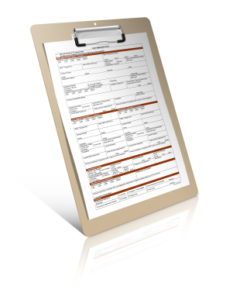Policy Rates for Life Insurance
FREE Life Insurance Comparison
Secured with SHA-256 Encryption
Compare quotes from the top life insurance companies and save!
Life insurance is a financial product that provides you with protection and peace of mind. With the proper insurance you can give your family an inheritance and income replacement so that they can live comfortably.
If you are ready to buy coverage, it is not only important to select the right type of insurance, it is also important to understand how you rates are calculated.
As with any type of insurance policy, several different factors are used when determining how much you should pay for coverage and also whether or not you even qualify for a policy based on your age and health.
Read this guide to life insurance policy rates, and learn for yourself the different conditions that could affect your premiums for life cover.
Use the FREE comparison tool at the top of this page!
How does the life insurance industry work?

Insurers provide a large amount of coverage in exchange for a fixed premium in hopes of receiving your policy payments for an extended period of time without having to pay out death benefits.
To reduce the number of claims that are filed, the company will use both mortality and morbidity tables so that they know your life expectancy and how likely you are to file a claim within the term of your policy.
This is called managing risk, and it is how insurance companies are able to pay premiums and also profit.
Accepting every applicant simply is not practical, and insurers must ask questions and then verify the answers that you provide to assess your health at the time of application.
While there are specialty companies that advertise their no medical and no underwriting policies, all traditional insurers will ask at least a handful of questions to determine if you have medical conditions, habits, or even hobbies that might put you at-risk.
What does it mean to have a policy underwritten?
When you request quotes, it is easy to assume that the quotes that you are given are the price that you will pay for coverage once your policy is issued.
Before you assume that the quotes you are comparing are fully accurate, you must learn what the underwriting process is and what an underwriter actually does.
When you buy an individual policy, which is a policy that you choose and you own, you must medically qualify for coverage.
To medically qualify, you will be asked to answer application questions and also to visit the doctor to have your vitals checked and your blood taken.
If you are applying for a large policy or you are in your later years, you may need to complete a more extensive medical check including an EKG. After your application is completed and your test results have been submitted, the underwriting process will begin.
Underwriting is a term that dates back hundreds of years when groups of merchants and sea captains would meet at a coffee shop called Edward Lloyd.
These merchants would describe the cargo and investors would write their names under the risk they were willing to take on in exchange for a fee from the merchant.
Because the financial investor wrote under the contract request to say they would accept the risk, they were the underwriter.
In today’s modern day, underwriter is the person who assesses risk and approves or denies a life insurance application.
What factors can affect your rates when you submit your application?
Before you begin to fill out the paperwork and provide all of the usual personal information, you should be familiar with the factors that affect your rates.
It is always important to provide the most accurate information possible because your answered are verified through electronic verification systems that you may have never knew existed.
Here are some of the factors that will affect life premiums at the time that you are quoted or when the policy is underwritten:
Age at the Time of Application

Age may be something that you cannot change, but it is a legitimate rating factor when you are buying coverage that will pay your beneficiaries when you pass away.
The older you are, the more you are considered a risk.
The higher the risk class you fall into, the higher your premiums. Due to the fact that your premiums could be as much as 3 times higher based on your age, it is critical to buy insurance while you are still young and healthy.
Buying insurance young ensures that you will have level premiums and that you will not get denied for coverage because of a single diagnosis at the doctor office.
Overall Health At the Time of the Application
A life insurance application will be filled with health-related questions if you are medically qualifying for coverage. Policies that require you to answer health questions or get a physical will cost you less in the long run if you are considered to be in good health.
You must answer questions about your medical history, disclose any pre-existing conditions that you have, and submit to a paramedical services visit to provide a blood and urine sample.
Disclose everything on your application because the underwriter will order your medical records and will also access the Medical Information Bureau (MIB) database that will display information on prescriptions that you take and even if you have applied for life insurance and been denied in the past.
You give the underwriters approval to order these records when you sign your application and if the records tell a different story than the one that you told on your application it could be grounds for denial for misrepresentation of your medical history.
Lifestyle and Habits
Do you smoke tobacco products? Do you drink more than just occasionally? If you have habits or addictions that can afford your health, you may pay more for coverage. Most insurance companies now use what is called an oral swab to test your saliva for the presence of tobacco or marijuana.
If the medical test shows you have smoked in the last 12 months, you will be rated as a smoker or denied for violating the underwriting rules.
Those rated as tobacco users can pay 3 times as much for coverage depending on their health status. If you have disclosed that you drink frequently, this behavior could cost you. One way to save is to change your lifestyle to get into a more favorable rating class.
Hobbies and Occupation
If you love extreme sports, you make it a habit to travel to dangerous areas to provide aid, or it is your job to do something that puts you at-risk, you can expect to pay higher premiums than someone who golfs, travels domestically, or works in an office.
Your hobbies and profession have a direct affect on rates because the trends show the people in dangerous occupations or who do risky activities have a much higher likelihood to die before they reach their life expectancy.
Driving Record
It is easy to assume that your driving record everything to do with auto insurance and nothing to do with life insurance but that is not the case. Your driving habits can affect your mortality. The odds of dying in a car accident on any given day are 1 in 272.
The odds when you have moving violations, reckless driving convictions or a driving under the influence conviction are much higher. This is why your driving record is used to determine if you should be surcharged or if you are responsible behind the wheel of a two ton weapon.
Geographic Region
Mortality rates and life expectancy vary by region. This is why regional data will be used to determine how much to charge you in a specific area.
Some factors that can affect this data is pollution in the area, access to medical car, transportation and crime rates.
How Long Does Underwriting Take?

As soon as you submit your application online or through your agent the underwriting process begins. The form will be reviewed, records will be ordered, and answered will be verified.
If the information is accurate and your records are sent in a timely manner, your application may be approved within 30 days.
If you have submitted payment at the time of application, the policy will be temporarily active until it is approved. If a condition is uncovered, your premiums may go up and you will have to pay the difference.
Some inaccuracies could result in denial and your premiums will be returned to you.
As you can see, your personal factors and also other regional data will be used to determine your life insurance rates. Every company offers their own set of rates.
This is why it is important to assess your life insurance needs and then begin comparing rates with the best insurers in the business.
Use a rate comparison tool, such as the FREE one below, that gives you access to the strongest insurers, and find a policy that protects you and your family.
Start Saving on Life Insurance!
Enter your zip code below to compare rates from the top companies in your area
Secured with SHA-256 Encryption



